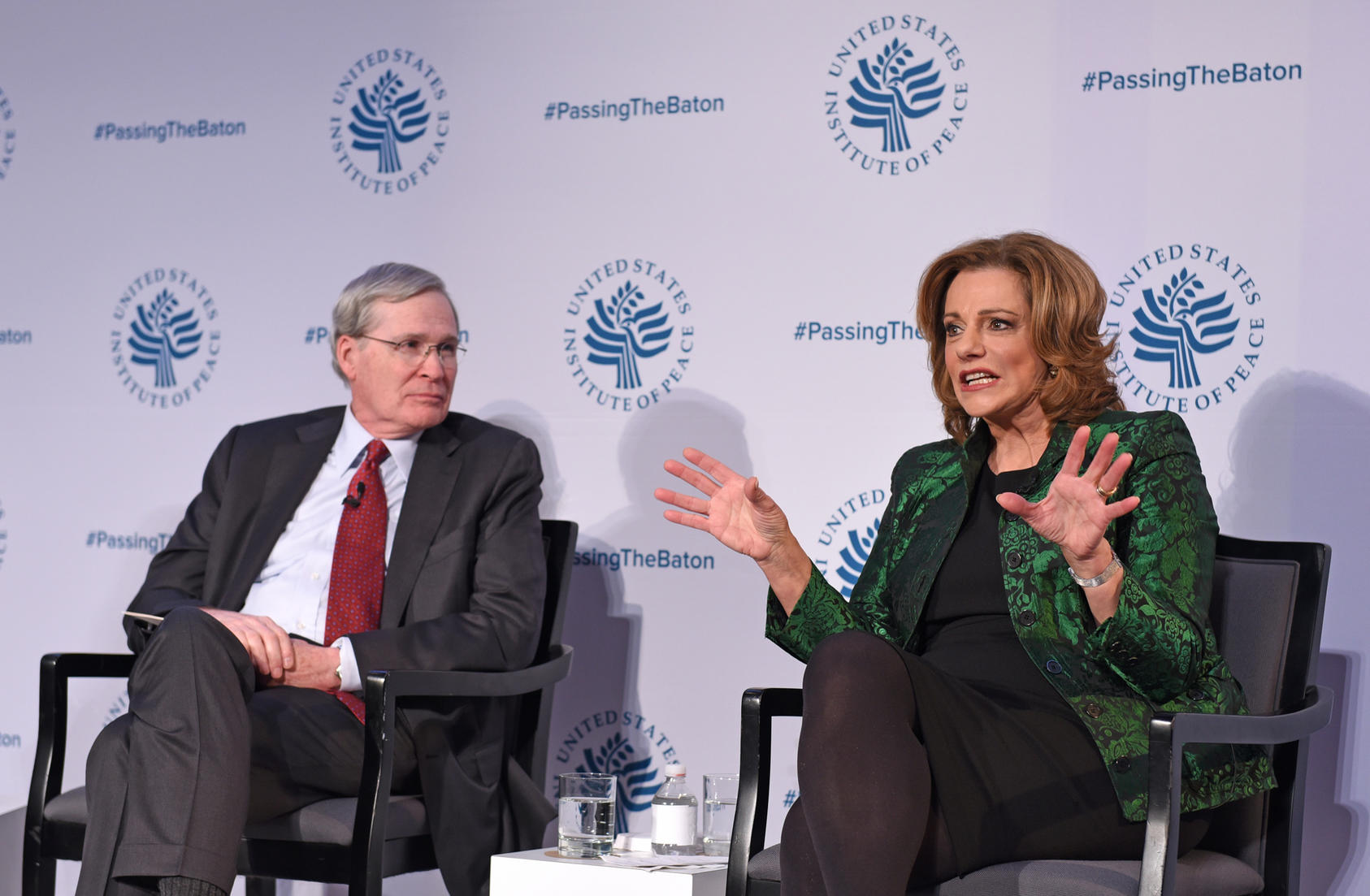Will the Trump Era Uphold U.S. Global Leadership?
Passing the Baton Recap: America’s Role in the World
At USIP’s Passing the Baton conference, former Obama administration officials Michéle Flournoy and Jacob Sullivan suggested that President-elect Donald Trump has raised unsettling questions about how he will conduct foreign policy and whether he will continue to meet historic U.S. commitments to institutions such as the North Atlantic Treaty Organization. The incoming deputy national security advisor, KT McFarland, argued that new approaches by Trump, combined with a nimble attitude, will create opportunities for increased leverage abroad.

“The new president is seizing an historic moment,” McFarland said in the last of three panel discussions that made up part of the conference Jan. 9 and 10. “That will create options.” She predicted that cheap energy along with regulatory and economic policy reforms will spark an “economic renaissance” strengthening Trump’s hand in world affairs.
The American people made clear in the election and recent polling that they don’t seek withdrawal from the world but feel they have carried too much of the burden, said Stephen Hadley, who served as national security advisor to President George W. Bush. Hadley called the sentiment a reasonable response that logically would be accompanied by rethinking elements of a post-World War II order that has long received bi-partisan support.
Yet Hadley said he is concerned that Western, democratic values are under attack in a new ideological contest, particularly by China and Russia, and that the United States must prepared to engage in that struggle.
Flournoy, a former under secretary of defense, said the presidential campaign had left confusion about whether the world should expect continuity or major shifts in U.S. positions. While it will take time for the Trump administration to formulate policies, “the world won’t wait,” she said. Some articulated guideposts are needed now to show that the country has “enduring national values,” she said.
In sometimes-contentious discussion over the Obama administration’s record and Trump’s criticisms of it, Sullivan said the tone of the presidential campaign raised questions whether any bi-partisan consensus still exists. Sullivan served as national security advisor to Vice President Joe Biden and as a top policy advisor to Democratic nominee Hillary Clinton. He said he hopes the new administration uses diplomacy to pull the world together to defend values that include democracy, equality and pluralism.
“The mistake we make—and it’s not a partisan thing—is that we constantly tell other countries what to think,” McFarland said. U.S. foreign policy has been formulated from its long-held position as the world’s most powerful country, she said. “What I’m hoping in this transformational period is that we can start seeing things through others’ eyes.”
Moderator Susan Glasser, Politico’s chief international affairs columnist, asked where the first national security crisis for the new administration might come from. The panelists’ answers varied:
- No state is more eager to provoke an international surprise than North Korea, Flournoy said. The administration could learn on Inauguration Day, she suggested, that North Korea has tested an intercontinental ballistic missile.
- A major terror attack on Americans at home or abroad that has a “game-changing character” is a possibility, Hadley said.
- The biggest immediate strategic threat is a “catastrophic event” in the United States set off by terrorists who “get their hands on weapons of mass destruction,” Sullivan said. Climate change is the only other challenge that “comes close to that level of absolute catastrophe and over the long term even exceeds it.”



